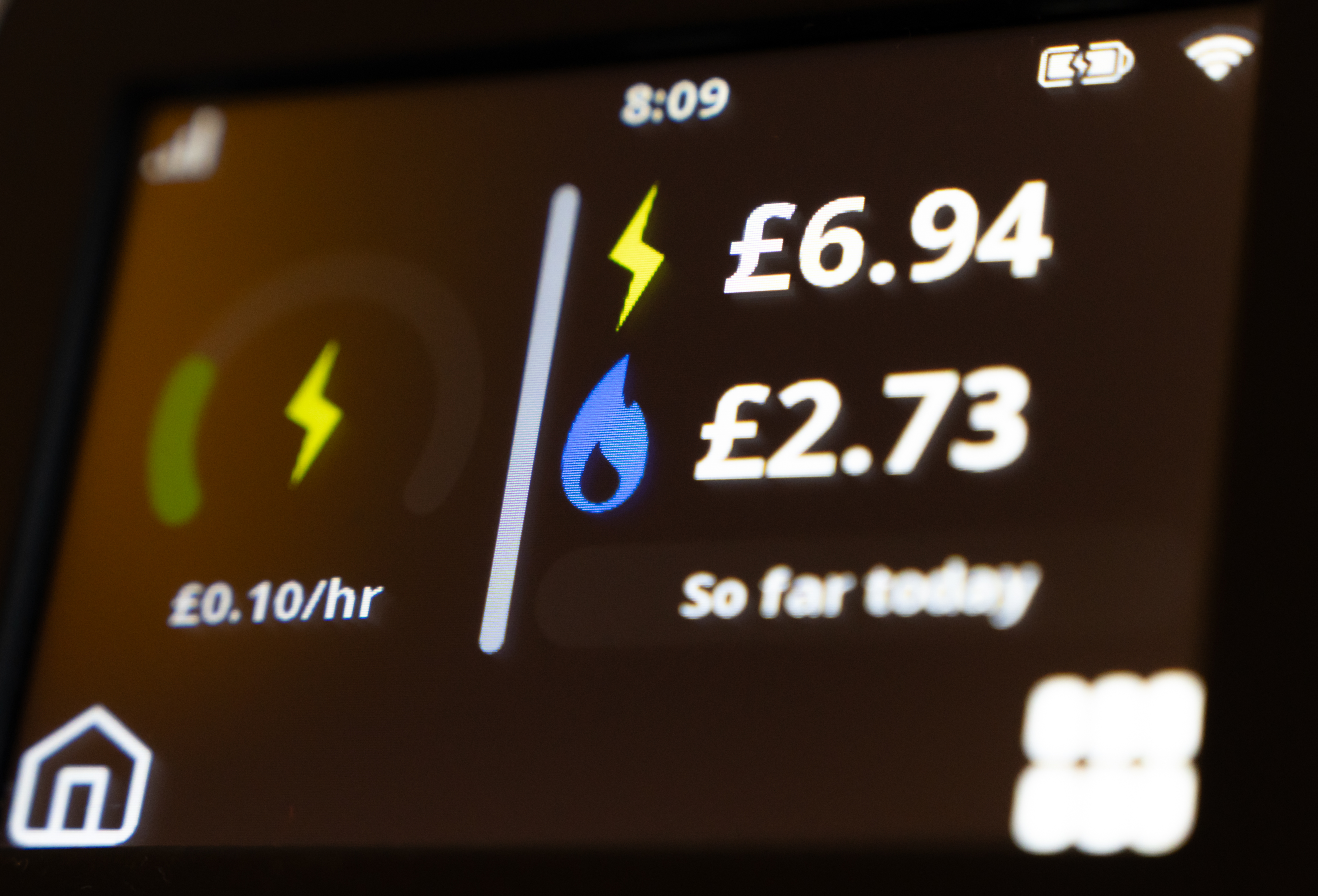Ofgem energy price cap to rise by 2% from October
Gas and electricity bills are set to increase in the final quarter of 2025 for millions of people on the energy price cap


Get the latest financial news, insights and expert analysis from our award-winning MoneyWeek team, to help you understand what really matters when it comes to your finances.
You are now subscribed
Your newsletter sign-up was successful
Want to add more newsletters?
Millions of customers face higher energy bills from October as the energy price cap will rise by 2%.
Energy regulator Ofgem has announced the tariff, which billpayers default to if they’ve not opted to fix their bills, will rise by around £2.93 a month between 1 October and 31 December 2025.
The average household on the energy price cap, paying by direct debit for gas and electricity, will pay £1,755 per year during the final quarter, up from £1,720 per year.
Try 6 free issues of MoneyWeek today
Get unparalleled financial insight, analysis and expert opinion you can profit from.

Sign up to Money Morning
Don't miss the latest investment and personal finances news, market analysis, plus money-saving tips with our free twice-daily newsletter
Don't miss the latest investment and personal finances news, market analysis, plus money-saving tips with our free twice-daily newsletter
The price cap sets a maximum rate per unit and standing charge that can be billed to customers, therefore those who use more energy may pay more than this.
Ofgem is urging customers to shop around and see if a fixed rate energy tariff could help them save money against the new price cap.
Around 20 million people – equating to more than a third of customers (37%) – are now on fixed tariffs, and won’t be affected by the change, the energy watchdog said.
Tim Jarvis, Director General, Markets at Ofgem, acknowledged there is “still more to do” but said there are “signs of a healthier market”.
He said: “There are more people on fixed tariffs saving themselves money, switching is rising as options for consumers increase, and we’ve seen increases in customer satisfaction, alongside a reduction in complaints.
“While today’s change is below inflation, we know customers might not be feeling it in their pockets.”
Jarvis said the UK will continue to see fluctuations in energy prices “until we are insulated from volatile international gas markets”, emphasising the need to diversify forms of energy.
A "small" increase in network and policy costs contribute to the upcoming rise.
Ofgem has also introduced rules to make sure people struggling with their bills can get the help they need from their supplier. This may include tailored repayment plans or emergency credit to reduce the risk of self-disconnection.
How much will I pay for my energy under the new price cap?
The actual energy price cap rates you’ll be charged will depend on which region you live in, how you pay your bill and the type of energy meter you have.
The below figures are based on the England, Scotland and Wales average for direct debit billpayers.
You can find the actual unit rates and standing charges for your region on the Ofgem website.
Energy price cap per unit and standing charge 1 July to 30 September 2025 | Energy price cap per unit and standing charge 1 October to 31 December 2025 | |
|---|---|---|
Electricity | 25.73 pence per kWh 51.37 pence daily standing charge | 26.35 pence per kWh 53.68 pence daily standing charge |
Gas | 6.33 pence per kWh 29.82 pence daily standing charge | 6.29 pence per kWh 34.03 pence daily standing charge |
Source: Ofgem
How can I reduce my energy bills?
There are ways Britons could save money on their energy bills.
For instance, switching to a fixed rate tariff could be £200 cheaper compared to the new cap, Ofgem said.
Around 34 million domestic customers are currently on a standard variable tariff (SVT).
Paying by direct debit or smart pay could also save you money.
Currently, 8 million customers are paying by standard credit but could save £135.60 per year by moving to direct debit, according to the watchdog.
Gareth Kloet, Go.Compare energy spokesperson, said today is a “timely reminder to check if your current energy contract is still giving the best value for you”.
“Using a comparison site can help you weigh up your options and decide whether you’d benefit more from the security of a fixed rate plan, or the flexibility of a variable rate that can adapt to market changes,” he added.
Before switching, customers should carefully review their current contract and energy use.
Kloet explained: “Keep an eye out for any early exit fees, as these could reduce or even eliminate any savings from moving to a new provider.”
Get the latest financial news, insights and expert analysis from our award-winning MoneyWeek team, to help you understand what really matters when it comes to your finances.

Jessica is a financial journalist with extensive experience in digital publishing.
She was previously Digital Finance Editor at GB News and Personal Finance Editor at Express.co.uk. She enjoys writing about savings, pensions and tax, and is passionate about promoting financial education.
-
 Do you face ‘double whammy’ inheritance tax blow? How to lessen the impact
Do you face ‘double whammy’ inheritance tax blow? How to lessen the impactFrozen tax thresholds and pensions falling within the scope of inheritance tax will drag thousands more estates into losing their residence nil-rate band, analysis suggests
-
 Has the market misjudged Relx?
Has the market misjudged Relx?Relx shares fell on fears that AI was about to eat its lunch, but the firm remains well placed to thrive